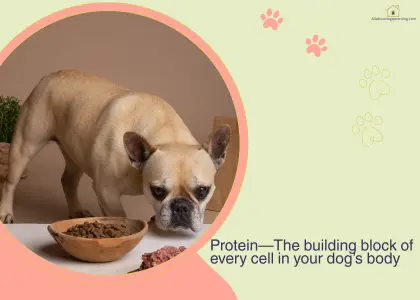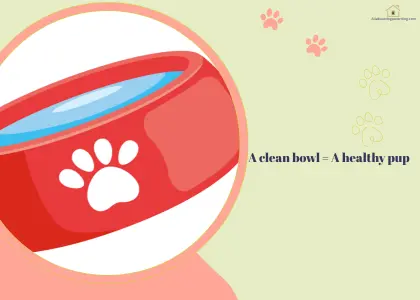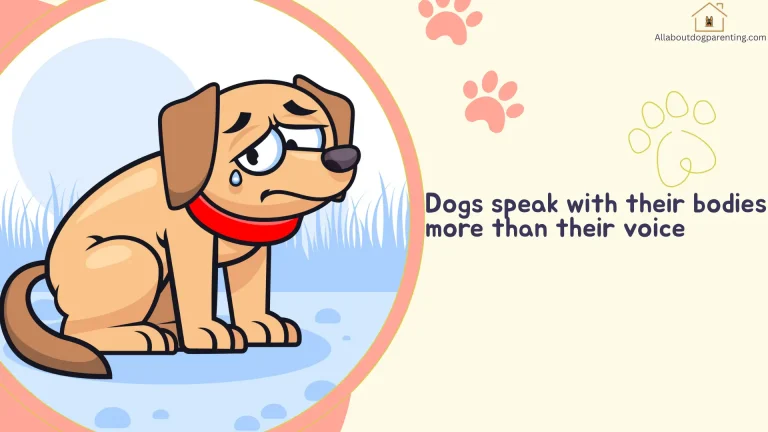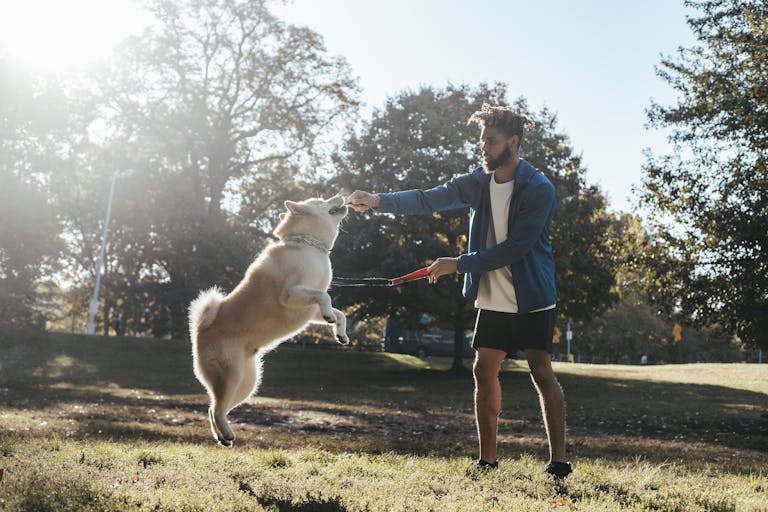Signs of Protein Deficiency in Dogs and What to Feed
Protein is the building block of a dog’s diet, essential for muscles, coat, organs and immunity. Protein deficiency in dogs can lead to weakness, lethargy, poor growth in puppies, loss of muscle in adults, and make them more prone to infections. As a pet mom, I always make it a point to feed my dogs a well-rounded diet with protein as the hero, because the cost of ignoring this macro is just too steep.
If you’re concerned that your pet may not be getting enough of this essential nutrient, this guide is for you. I’ll walk through the tell-tale signs of a low-protein diet in dogs and then cover the best foods to get your dog back on track. You’ll get practical, experience-based advice on keeping your dog healthy with protein, backed by insights from vets and canine nutritionists.
Why Protein is Vital for Dogs
The importance of protein for dogs cannot be overstated. It provides dogs with essential amino acids that are building blocks of every cell. It’s a major macronutrient, along with fats and carbs, that gives structure to the body. In fact, proteins help form ligaments, tendons, bones, hair and nails. They also drive enzyme and hormone activity, boost immune function, and repair tissues. A dog needs protein for,
- Growth
- Strong muscles
- A shiny coat
- Energy
- Strong immune system
If these essential amino acids in dog diet are missing, our canine companions can’t build muscle or heal properly. While it’s essential for all dogs, some need it more than others. For example,
- Protein for dog growth: Growing puppies require the most protein. Dogs’ protein requirement is high right after weaning
- Protein for muscle repair: Active or working breeds like sporting dogs, police K9s or agility champions also burn through protein faster and need more fuel for muscle repair
- Protein for muscle preservation: Senior dogs often lose lean muscle with age, a condition called sarcopenia, and vets now recommend a high-protein diet to slow that loss
Signs of Protein Deficiency in Dogs

Symptoms of protein deficiency in dogs can be subtle, especially early on. You may notice that your dog is shedding a bit more than usual or their coat is getting brittle and lifeless. Or that they are not as energetic as they used to be. Now, the correlation between low energy or poor coat health in dogs to insufficient protein in their diet isn’t always easy to make. That’s why it’s vital to be aware of what signs of protein deficiency in dogs look like, at different stages:
Early Signs
- Dull, dry coat or flaky skin: The fur may lose its shine, become brittle or even break easily. Poor coat health in dogs often signals nutrition gaps
- Mild weight loss or low energy: Your dog may seem a bit underweight or tire easily during walks. Reduced stamina or a little extra panting can hint at muscle energy loss
- Minor mood changes: Dogs might seem a bit down or less playful than usual, as amino acids also affect brain chemicals
Even these early symptoms mean something’s off. They often come with a gentle weight drop, but owners might chalk it up to aging or minor illness at first. However, if you notice your pet’s coat losing lustre or him seeming tired during his usual activities, it’s time to check his protein intake.
Advanced Signs
- Muscle wasting: Significant dog muscle loss is more obvious. Your dog’s spine or hips might start to protrude as muscle mass shrinks. Leg muscles may look less firm
- Poor wound healing and frequent illness: When your dog is suffering from a protein deficiency, cuts or sores take longer to heal and simple infections, like ear or skin infections, can become recurring
- Chronic lethargy and weakness: A once-active dog may nap all day, struggle to stand after lying down, or balk at stairs
At this advanced stage, the decline is clear. Appetite may remain normal, but despite eating, the dog is losing definition. If left unchecked, it leads to the most severe problems.
Severe Signs
- Drastic weight loss: Your dog may become very thin despite eating. Their body condition score plunges. Puppies with deficiency may stunt in growth
- Swelling: Oddly, severe protein loss can cause fluid build-up. You might see a bloated belly or puffiness in legs. This is a medical emergency
- Critical weakness: The dog might collapse, shake uncontrollably, or refuse to move. At this point, your dog requires urgent medical attention
If your dog shows these severe signs, especially edema or sudden collapse, go to the vet immediately. Protein deficiency at this level often means significant organ stress or loss of blood proteins.
Common Causes of Protein Deficiency in Dogs
Protein deficiency usually isn’t due to eating less quantity of food, but poor quality of food or underlying health issues that impede nutrient absorption. Some of the most common causes of protein deficiency in dogs include,
- Low-quality diets: Many cheap commercial dog foods use fillers like corn, wheat, soy that bump up carbs but don’t provide all essential amino acids. A bag may say “high protein,” but if that protein comes from by-products or plants, it might not deliver enough usable protein. Foods without a balanced amino acid profile or missing organ meats and diverse proteins pose a risk
- Improper homemade diets: Making home-cooked meals sounds good, but they serve your pet well only when you work with nutritionally complete recipes. A meat-and-veg stew alone may leave out key amino acids. If you DIY cook, it’s easy to create dog nutrition problems unless you follow a vet-approved recipe
- Medical conditions: Chronic illness can be a culprit. Kidney disease often causes protein to spill into urine. Liver problems can impair protein production. Digestive disorders, like inflammatory bowel disease or parasites, can flatten the intestinal villi and prevent nutrient absorption. In these cases even good food can’t reach the bloodstream. Some autoimmune or cancerous conditions also increase protein loss
- Life stage or breed demands: Puppies grow fast, large-breed dogs need plenty of protein for bone development, and working or high-energy breeds burn protein for fuel. As dogs age, their ability to digest protein efficiently can decline, yet their need to maintain muscle may rise. An older active dog or a crate-trained puppy both have higher protein needs compared to a sedentary adult dog
What to Feed Dogs with Protein Deficiency

Fixing a protein deficiency means choosing high-quality proteins and adjusting the diet carefully. Here are the best sources and tips for treating protein deficiency in dogs, based on my experience and nutrition experts’ advice:
High-Quality Animal Proteins
- Lean meats: Cooked chicken, turkey, beef, lamb, and pork are excellent sources of protein for dogs. They’re rich in complete proteins with all essential amino acids
- Fish and eggs: Salmon or whitefish offer omega-3s plus protein. Eggs, in particular, are nature’s perfect protein. They contain every essential amino acid a dog needs
- Organ meats: Liver and heart are nutrient-dense. Even a small amount of boiled chicken liver or beef heart supplies concentrated protein and vitamins. However, these must be introduced slowly in dog diet to avoid stomach upset
Animal sources are the most digestible for dogs and provide a balanced amino acid profile.
Protein-Rich Dog Foods
- Look for real meat first: Whether wet or dry, the first ingredient should be a named meat, not a grain or meat meal
- High-protein formulas: Choose kibble or canned diets labeled for high protein or sport performance, especially if your vet agrees. For adult dogs, foods with 20–27% crude protein generally supply enough amino acids
- Check labels: AAFCO-rated diets ensure minimum protein levels. Animal nutritionist Theresa Lantz suggests, “Adult diets in the 20–27% protein range will meet most dogs’ needs. Also seek foods with supplements like fish oil for extra nutrition.”
- Wet food options: Canned or fresh-frozen diets often have higher protein content and moisture, aiding digestion
Alternative Protein Sources
For dogs with meat allergies or picky eaters:
- Legumes and grains: Lentils, chickpeas, quinoa and rice provide plant-based protein. Quinoa is nearly a complete protein on its own. These can supplement a meal but shouldn’t fully replace animal protein
- Soy and dairy: Tofu or plain Greek yogurt can be used to add some protein to your dog’s diet. Soy, however, is an incomplete source of protein. It lacks some amino acids, so use it judiciously. Low-fat, sugar-free yogurt and cottage cheese also offer protein plus probiotics
- Treat toppers: Consider freeze-dried liver or fish skins as “toppers” on regular food. This adds protein and flavor without overhauling the entire diet.
Supplements help but cannot replace real sources of protein in a dog’s diet.
Feeding Guidelines
Once you’ve zeroed in on the right sources for adding more protein for your dog’s diet, getting the quantity right is the next piece of the puzzle. Here are some broad guidelines:
- Adjust by dog: Larger breeds or hard-working dogs need more food than small, older, or less-active pets. Track body condition. You want solid ribs that you can feel but not see, and a visible waist
- Portion control: Feed measured portions at regular times, not free-choice. Overfeeding, even protein, can lead to weight gain
- Quality matters: Always pick balanced diets formulated for your dog’s life stage. Check for an AAFCO statement or a veterinary nutritionist’s approval
- Vet advice: Seek dog nutrition vet advice before making any significant changes to your dog’s diet and always make the transition to a new diet gradually over 7–10 days. Sudden spikes in protein can upset the stomach
What to Do if You Suspect Protein Deficiency
If you see worrying signs such as weakness, coat issues, weight loss, or muscle loss, you must take proactive action to address protein deficiency in your dog:
- See your veterinarian: Describe the symptoms and diet. Your vet will likely run blood tests. They may also do urine tests to rule out kidney protein loss. Serum albumin and total protein will show if your dog is truly deficient. In protein-losing enteropathy, blood protein dips and so does calcium
- Check for underlying issues: Illnesses like parasites, IBD, or kidney disease may need treatment first. Treating the underlying cause is the first step to fixing nutrition
- Gradual diet changes: If your vet gives the all-clear, improve the diet slowly. Mix in higher-protein food or cooked meat over a week or two. An abrupt switch can cause diarrhea or vomiting, so pace it
- Vet-guided plan: Work with the vet to set targets. They can tell you a healthy weight and how many grams of protein your dog should eat daily. Follow their recovery plan, which may include supplements or prescription diets
Preventing Protein Deficiency in Dogs

Preventing protein deficiency in dogs can be far more fruitful than helping your dog recover from the effects of lack of protein. Here are some ways you can ensure it:
- Feed complete, balanced diets: Always choose a balanced diet for dogs, be it in the form of high-quality commercial foods that list real meat first and carry an AAFCO nutrient statement or a well-rounded, nutritionally balanced home cooked food
- Rotate protein sources: Even within a good diet, switching proteins, serving chicken one month, lamb the next, ensures no single amino acid gap. It also reduces allergy risk. Variety means a wider range of nutrients
- Limit fillers & carbs: One of the most crucial protein nutrition tips for dogs is not rely on grain-heavy foods. If carbs dominate your dog’s kibble, protein may be artificially diluted. Quality over quantity is key. Look for real meat or novel proteins like duck, venison, instead of mostly rice or corn
- Routine check-ups: Schedule regular wellness checks for your dog, especially if you have a senior dog or “at-risk” breeds like toy breeds, Labrador Retriever, who are prone to IBD. Your vet can catch subtle issues like rising BUN/creatinine or mild anemia before full-blown deficiency sets in
Takeaway
Protein is crucial for every dog’s health. It fuels muscles, supports immunity, and provides lasting energy. Without enough high-quality protein, dogs become weak, prone to infections, and lose that glossy coat and happy bounce. Remember: prevention is far easier than cure. By feeding a balanced diet for dogs rich in quality protein and keeping an eye on body condition, you’re protecting your dog from the dangers of protein deficiency. Regular vet check-ups and careful diet choices will keep your dog thriving.







